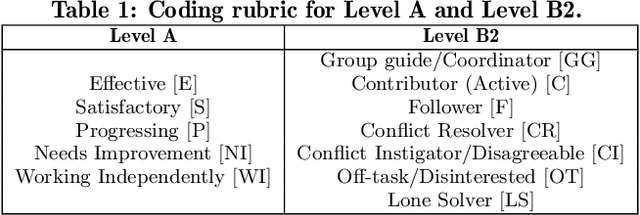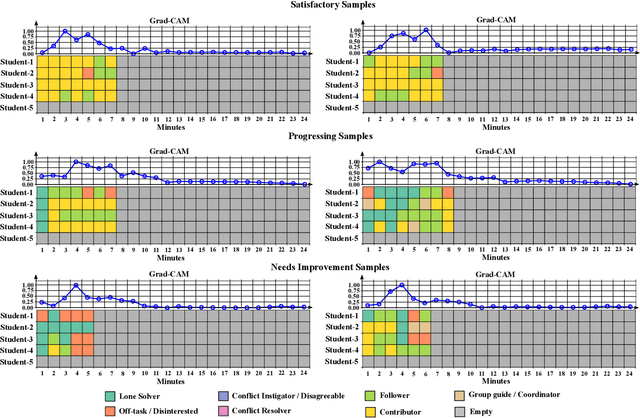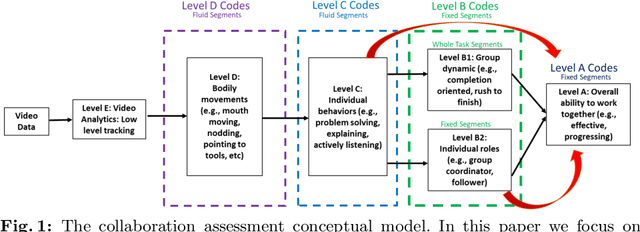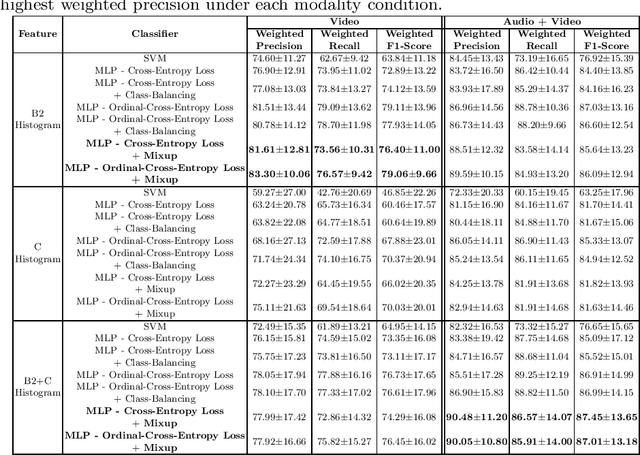Svati Dhamija
Towards Explainable Student Group Collaboration Assessment Models Using Temporal Representations of Individual Student Roles
Jun 17, 2021



Abstract:Collaboration is identified as a required and necessary skill for students to be successful in the fields of Science, Technology, Engineering and Mathematics (STEM). However, due to growing student population and limited teaching staff it is difficult for teachers to provide constructive feedback and instill collaborative skills using instructional methods. Development of simple and easily explainable machine-learning-based automated systems can help address this problem. Improving upon our previous work, in this paper we propose using simple temporal-CNN deep-learning models to assess student group collaboration that take in temporal representations of individual student roles as input. We check the applicability of dynamically changing feature representations for student group collaboration assessment and how they impact the overall performance. We also use Grad-CAM visualizations to better understand and interpret the important temporal indices that led to the deep-learning model's decision.
A Machine Learning Approach to Assess Student Group Collaboration Using Individual Level Behavioral Cues
Aug 05, 2020



Abstract:K-12 classrooms consistently integrate collaboration as part of their learning experiences. However, owing to large classroom sizes, teachers do not have the time to properly assess each student and give them feedback. In this paper we propose using simple deep-learning-based machine learning models to automatically determine the overall collaboration quality of a group based on annotations of individual roles and individual level behavior of all the students in the group. We come across the following challenges when building these models: 1) Limited training data, 2) Severe class label imbalance. We address these challenges by using a controlled variant of Mixup data augmentation, a method for generating additional data samples by linearly combining different pairs of data samples and their corresponding class labels. Additionally, the label space for our problem exhibits an ordered structure. We take advantage of this fact and also explore using an ordinal-cross-entropy loss function and study its effects with and without Mixup.
 Add to Chrome
Add to Chrome Add to Firefox
Add to Firefox Add to Edge
Add to Edge